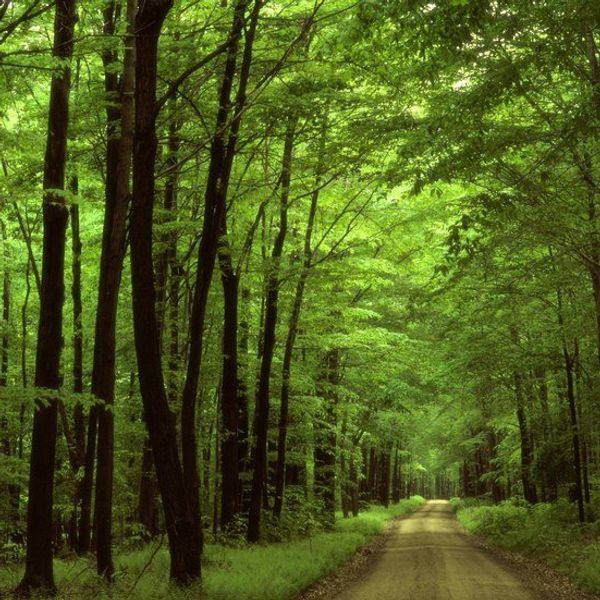In the world today, there are all sorts of social and political movements. Though society has always been flawed with endless problems, people are more aware of these problems today than ever. The rise of the internet, smartphones, and social media has created a new social climate of awareness as a result of greater interconnectedness. But how is it that the public is growing more aware, yet nothing seems to be changing?
I began really thinking about this perplexity recently, as I listened to a TedTalk discussing global warming. According to public polling from the Yale Program on Climate Change Communication, 70% of Americans agree that global warming is occurring. But according to the same polling, only 40% of Americans think climate change will affect them personally and are adjusting their lifestyles because of it. This is the gap between knowledge and action. Two-thirds of Americans acknowledge climate change, but only less than half are doing something about it. Something is being lost in translation, but what is it?
This phenomenon extends far beyond climate change though. Poverty. Hunger. Displacement. Lack of access to clean water. Sexual inequality. Like I said earlier, there are an endless array of problems the world faces, and we are more aware of them than ever, but how do we link knowledge and action?
We know that most issues that have risen due to globalization, affect the people who contribute to the problem the least, the most. Global warming is disproportionately affecting those in poverty who can't afford to recover from wildfires in California, stronger hurricanes in the Gulf of Mexico, or increasingly severe droughts in Syria. People in Flint, Michigan or Karachi, Pakistan lack clean water because of the actions of people far richer than themselves. Is a lack of personal victimization the reason? Is raised awareness and stagnant action a symptom of a bigger issue of lacking compassion or are people just lazy?
As a nineteen-year-old college student, maybe I'm naïve, but I refuse to believe that the U.S. and global, society as a whole is lacking in action because they are lacking in compassion or because third world problems "are not their problems." Philosopher, Christopher Heath Wellman, put it best when saying to "[n]otice how awkward it is to protest that those of us who are privileged cannot be obligated to change the system because we are impotent in the face of its enormity, while simultaneously suggesting that those who are starving to death are entitled to no assistance because they are responsible for the political and economic institutions which led to their ruin" in regards to world hunger.
You may be thinking, "OK but how can I make a difference, as just one person?" What Wellman meant in his quote was that you alone cannot make a difference for people starving in another country, but neither can they. It's only when we come together as a society and commit to action can we overcome these issues. Perhaps this is my Global Studies major speaking, but we are all citizens of the world, not just citizens of the U.S. and we must allow our compassion accordingly. No one has any choice in where, what circumstances, or what society they are born into so to refuse action which would help victims of circumstance would be an ignorant form of elitism.
This problem isn't exclusively on the national and global scale either; everyday people see problems in their personal lives and yet, only a small minority take action. Take, for example, people who stress about procrastination, but never change their time management habits. People who make the same New Year's Resolution every year because they never follow suit. Smokers who want to quit but don't try. Students who complain about poor grades but don't make time to study. Even in our own personal lives, knowledge rarely seems to prompt action.
I don't have an easy fix for this. And I don't hold the solutions to global warming, poverty, hunger, lack of access to clean water, or sexual inequality. But I do know that it doesn't need to be this way. It's often said that recognizing you have an issue is half the battle, the next half is action. Every day, our knowledge of the world and everything which inhabits it is increasing, the time for action is now. If we all, individually, take it upon ourselves to care for one another and work towards a better world, in small ways, I believe that together, we can make anything a reality.
- The Effects of Nationalism On Humanity ›
- Social Media's Impact On Society ›
- The March For Our Lives Was Influenced By Literature And Social ... ›
- (Political) Actions Speak Louder Than Words ›
- 7 Things Your GPA Does Not And Will Never Measure ›
- Mental Health Vs Gun Violence: Arm Yourself With Knowledge ›
- What You Do With Your Knowledge Is More Important Than Your ... ›
- 'People Helping People' ›
- How Helping Others Can Be Helping Yourself ›
- The Importance Of Helping Others ›
- A Motivational Letter to Myself ›
- 13 Tips To Help Motivate You In College ›
- The Complicated Privilege Of Self-Care In 2018 ›
- The Importance Of History To Awareness ›
- 60 Ways to Improve Your Cultural Awareness ›
- Social Change Throughout the World ›
- Being A Global Citizen Vs. Nation Citizen ›
- Globalization: What Does It Really Mean? ›
- Climate Change Is Real And Your Denial Won't Change That ›
- Climate Change And The Bleak Future For Our Children ›
- Climate Change: It's Time For Us To Make A Change ›
- 7 Simple Ways You Can Personally Help Slow Global Warming ›
- 7 Facts That Prove Global Warming Is Real ›
- Knowing Vs. Understanding Poverty ›
- Solving Climate Change Is The Key To Solving Poverty ›
- Looking Poverty In The Face ›
- Here's Why U.S. Citizens Can't "Just Get Out Of Poverty" ›
- Call to Action: No More Me Too's ›
- Millennials Are A Generation Of All Talk And No Action ›
- Trust Actions, Not Words ›
- Do Your Actions Match Your Words? ›
- A Constant Thirst For Knowledge Translates To Power And Quality ... ›
- The Dichotomy Of Knowledge And Innocence ›
- The 3 Types Of Knowledge Hoarders ›
- The Impacts of Social Movements on the Political Process: The Civil ... ›
- Knowledge versus Action - TLS Learning ›
- Knowledge Vs Action | Surah Al Fatihah | Quran Gems - YouTube ›
- Frontiers | Knowledge vs. Action: Discrepancies in University ... ›
- Knowledge vs. Action: Discrepancies in University Students ... ›
- NO EXCUSES - Best Motivational Video - YouTube ›
- Motivation: You Don't Lack It, You Just Have the Wrong Goals ›
- Motivation | Psychology Today ›
- INTERCONNECTEDNESS | meaning in the Cambridge English ... ›
- Understand Climate Change ›
- Climate change: How do we know? ›
- NASA: Climate Change and Global Warming ›
- What is global warming, facts and information? ›
- Poverty Facts | Poverty Solutions ›
- Action | Define Action at Dictionary.com ›



















